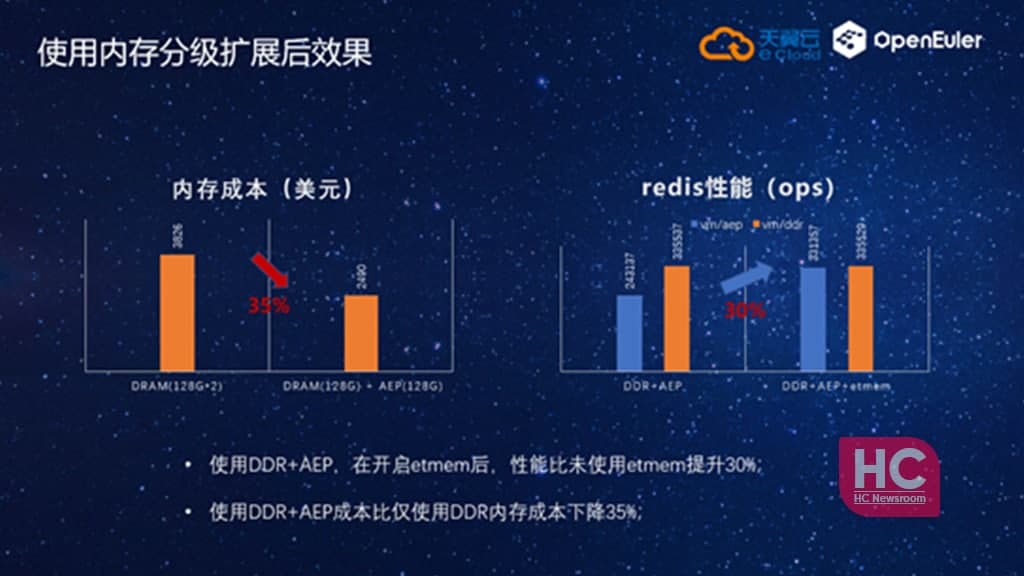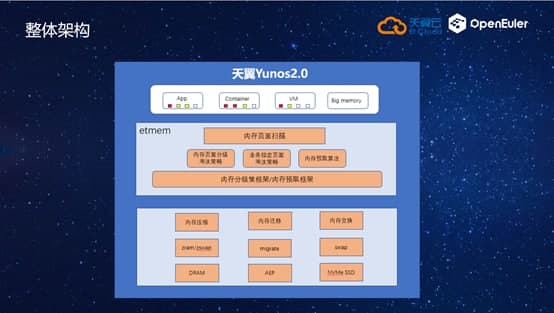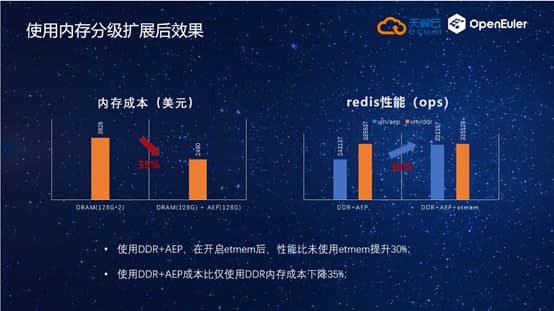Euler
Tianyi Cloud has used Huawei OpenEuler memory grading feature

As revealed by the reports, Tianyi Cloud and Huawei OpenEuler open-source teams have jointly innovated the memory grading expansion feature and conducted internal prototype verification in Tianyi Cloud virtualization scenarios.
The result of this test shows that memory grading technology greatly improves memory cost performance. Let’s take a look at the memory grading technology in a bit of detail.
Constrained by the bottleneck of memory technology, memory costs are high. With the development of CPU computing power, especially the reduction of ARM core costs, memory has become a key issue that constrains business costs and performance. How to save memory cost and expand memory capacity has become an urgent problem to be solved. Therefore, Tianyi and Huawei OpenEuler introduced the memory grading expansion function.
The memory hierarchical expansion function does not affect business functions, through DRAM and low-speed memory media, such as SCM, AEP, etc. to form multi-level memory, through automatic memory scheduling to make hot data run in the DRAM high-speed memory area, allowing cold data to be exchanged to low-speed Memory area, thereby increasing the memory capacity and ensuring the efficient and stable operation of the core business.

This feature is suitable for applications that use a large amount of memory and are relatively infrequently used. In these scenarios, the effect is better and the benefits are greater.
Results:
In the virtualization scenario, how to expand the memory capacity while reducing the memory cost and increasing the memory oversold ratio is a business pain point facing Tianyi Cloud.
In response to this pain point, Tianyi Cloud and Huawei’s openEuler open source team decided to verify the memory grading technology in scenarios where virtual machine internal business access is not frequent, and try to increase virtual machine density while keeping business performance flat or slightly degraded.

Through joint innovation, the AEP and DDR scenario were prototyped and verified. Compared with when the memory expansion function is not enabled, the redis performance of the virtual machine in AEP has increased by about 30%, basically reaching the same level as the performance of the virtual machine redis in DDR.
At the same time, when the memory capacity is equal, the use of DDR with AEP reduces the memory cost by about 35% compared to the pure DDR scenario, which significantly improves the cost-effectiveness of memory usage.






